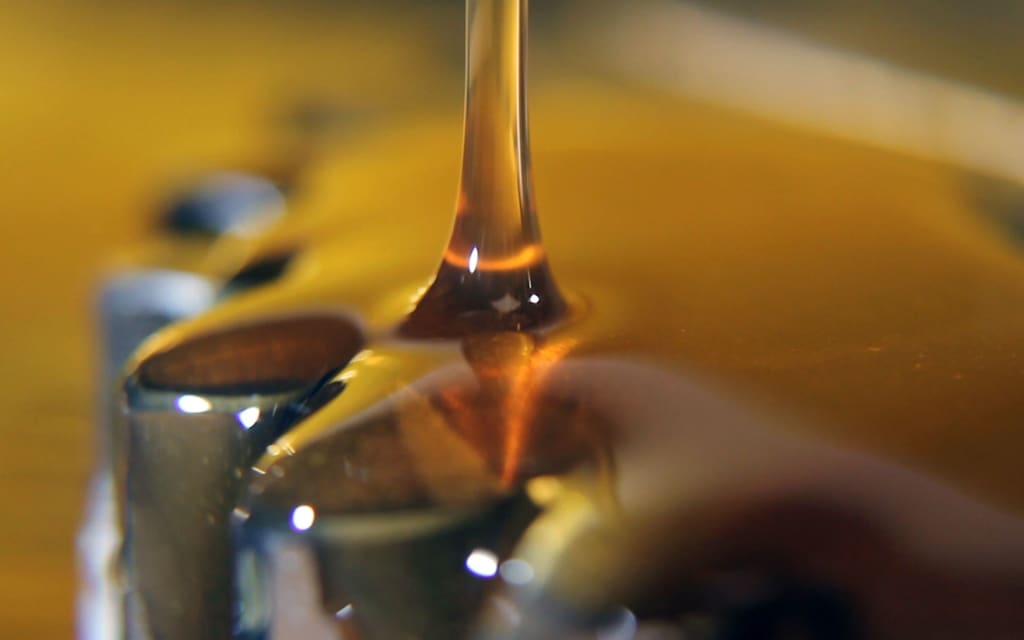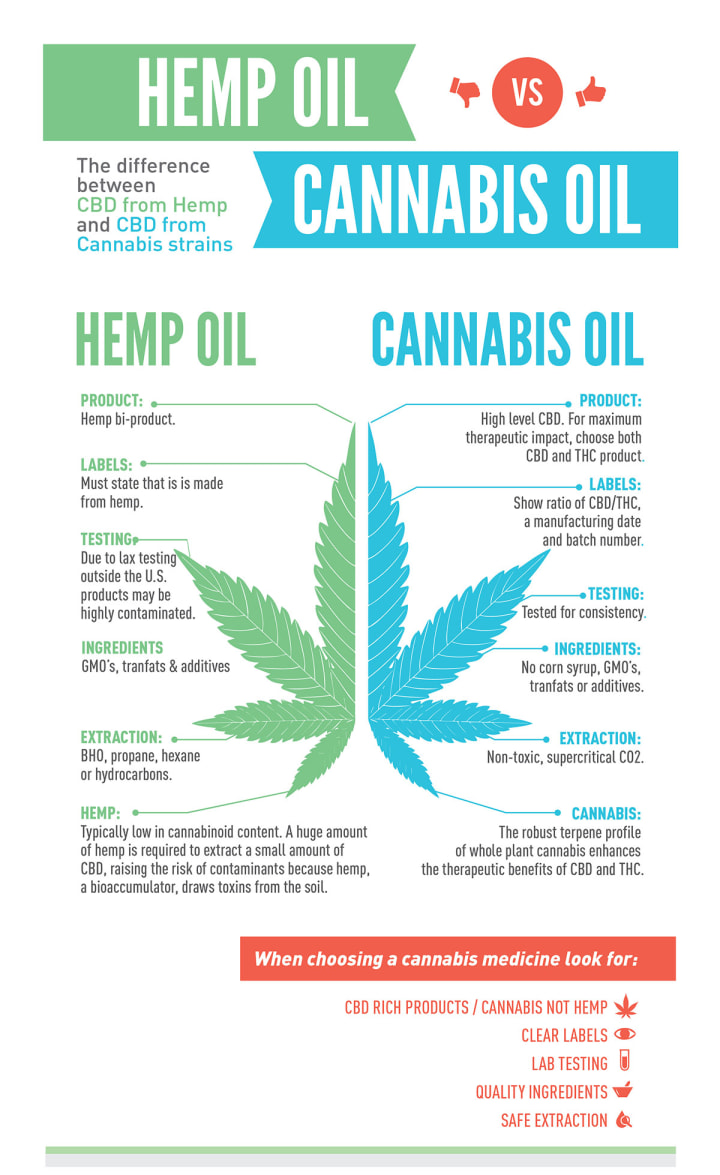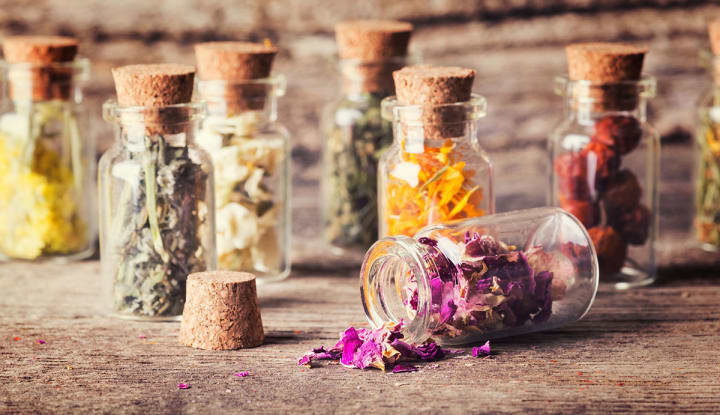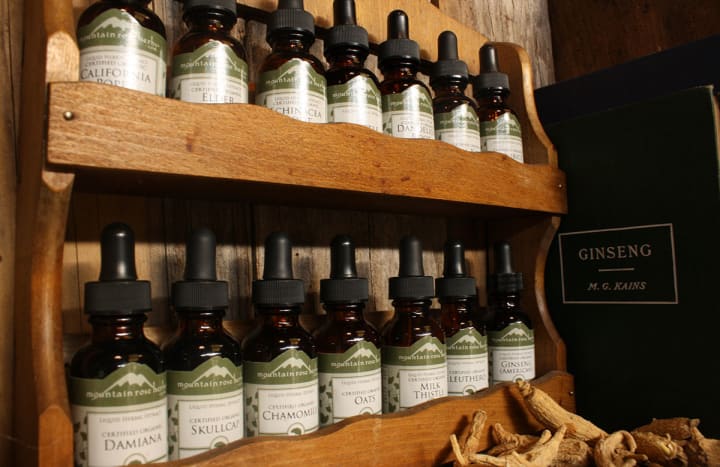Herbal Extract Health Benefits
Herbal extracts, especially in liquid form, provide rapid and unique health benefits.

Liquid herbal extracts are excellent options for healing because of their easy assimilation and high concentration of an herbs active constituents. Once a few drops of liquid extract are placed under the tongue, the brain tells the body that it's in there and ready to do its job. This process has been used successfully for administering the benefits of THC for medical purposes. Marijuana and its health benefits have been contested for decades. Herbal extraction is another step toward the institutionalization of the weed industry. And because it is free from binders and fillers, more of the beneficial properties of the herb gets into the bloodstream.
Not everyone is familiar with a liquid herbal extract, how to take it, how much to take and what makes one different from another. Beyond the benefits of THC, there are a multitude of other herbal extracts for health purposes. Simple advice, read the label. Reputable manufacturers will print clear instructions and information on their labels.

Infographic via The Travel Joint
Tinctures or Extracts
Some pointers to look for-the first thing you need to know, is whether you are buying an extract or a tincture. Tinctures are a diluted way of taking herbs, they display a very high alcohol content and the herb content per fluid ounce is very low. Extracts, on the other hand, generally display a very low alcohol content and the herb content per fluid ounce is very high. These are generalized statements, but a good rule of thumb to follow. When some tinctures are priced similarly to extracts, it becomes clear that in value-for-money terms, an extract is your best choice. And what if you don’t want any alcohol at all in your extract? Then you have a choice of glycerine extracts or other types of alcohol free extracts. The disadvantages of a glycerine extract are that it is a poor solvent for most herbs, and when used as an alcohol substitute, requires additional preservatives. Alcohol free extracts seem to offer all the advantages, they are excellent for children, diabetics and people with alcohol sensitivity.
One thing to realize though, taking an alcohol free extract is a different experience. Because of the lack of alcohol, you don’t get that “buzz” sensation on the tongue. People mistakenly think the extracted herb gives off this sensation, but it’s the alcohol. The misconception is, the bigger the “buzz,” the stronger the extract, when in fact it means the alcohol content is higher. Liquid herbal extracts are growing in popularity, they are easy to take and once you understand them, they can be extremely beneficial. To get the best results, it is important to choose the herbs that will best address your specific health issue. Some individual extracts will work for specific conditions, while other conditions are better treated with formulas that combine multiple herbs.
Keep it Consistent
When taking herbal extracts for an acute or short-term condition, you should take them frequently to maintain a high level of them in your bloodstream. This will help remedy your condition quickly and completely. When taking herbal extracts for a chronic issue such as arthritis, consistency is more important than dosage. It is important to take herbs on a regular basis for an extended period of time so that they can properly offer the affected tissues healing support. It is best to take extracts between meals without food. This makes the digestive process faster and lets the extract rapidly enter the bloodstream.
As you delve into the world of extracts, many questions may arise. What kind should I take? In what form? How many, and for how long? Below we have compiled a collection of the most frequently asked questions consumers have before trying extracts for the first time.
What forms do herbal products come in?
The most popular herbal products in America are capsules, soft-gels and tablets. Herbal teas, especially in teabags, account for a substantial amount of the herbs consumed in the United States. Herbs in liquid herbal extract form are also a popular way to ingest therapeutic herbal products. Finally, herbs are available in bulk form in some health and natural food stores.
Which form of herbs offers the most therapeutic benefits?
The therapeutic benefits achieved by using herbs depend on a variety of factors. For instance, does the herbal product contain all of the active constituents in ratios found in nature, or have the constituents been altered? Is the herbal product fresh? What is the shelf life of the herb? Has the herb been processed in such a way to ensure that it will be effective when you are ready to take the product? Does the product require you to digest the herbs in order to get all of the benefits from these herbs? Is it convenient to take? Is it affordable? Does the product address the problem that you are trying to solve? Of all the available forms of herbs, liquid herbal extracts best address all of these factors. This is the reason that American herbalists recommend this form of herbs the most.
Why are herbs in liquid herbal extract form preferable over dried herbs in capsule or tablet form?
Most herbs in tablet or capsule form are ground months prior to appearing on store shelves. They lose many of their active ingredients both when they are ground and while they are in storage. Herbal tablets also contain fillers, binders and other materials necessary to compress ground herbs into tablet form. Tablets must also be dissolved by the body's digestive system before the herbs can be assimilated. Herbal capsules tend to be better than tablets because they do not contain the extra manufacturing materials and they dissolve easily in the stomach. However, if the body is not digesting and assimilating well, the potential therapeutic benefits of herbs in tablet and capsule form diminishes because the digestive system must break the active constituents free from the fiber and cellulose. Herbs in capsule and tablet form also lose potency as they are exposed to oxygen (capsules oxidize more rapidly than tablets).

Image via Shutterstock
You say herbalists recommend liquid herbal extracts over other forms of herbs. Can you explain more?
Herbalists prefer liquid herbal extracts over other forms of herbs for four reasons: freshness, potency, absorption and formulation.
Freshness: As detailed in the previous answer, herbs in liquid herbal extract form retain their freshness and potency much longer than ground herbs in capsule or tablet form. Also, in many instances, using fresh [undried] herbs is the only way to deliver the specific properties necessary for healing. Liquid herbal extracts start with fresh [undried] herbs that are picked and processed the same day so that the active constituents can be preserved. Herbs found in capsules, tablets, teas and loose herbs, on the other hand, must first be dried, which saps them of the fresh active constituents necessary for healing. Freshness is also dependent upon how herbs are ground. Super-cold (cryogenic) grinding, done minutes before extraction of the herbs, is effective in preserving all of the herbs' active ingredients because it prevents evaporation of essential oils and degradation of active substances.
Potency: Herbalists have long recognized that potency is not about isolating a single "active constituent". Potency results from the interaction of many constituents within each herb. Herbal products containing a full spectrum of bioavailable constituents promote healing as well as the maintenance of health. Liquid herbal extracts regardless of form, time and again, deliver more bioavailable constituents than any other herbal supplements.
Absorption: Experience has proven that liquid herbal extracts bypass the digestive process and enter the bloodstream rapidly. This makes them the most effective way for the body to absorb medicinal herbs. Once assimilated, the herbs start working in your body within minutes.
Formulation: Liquid herbal extracts can effectively deliver the healing power of several herbs at once. Clinical experience shows those herbal formulas, comprised of a combination of several herbs, produce better results than single herbs. In a formula, each herb is designed to support a specific body system in a manner that complements the action of other herbs, and the systems they support. Well-designed, time-tested formulations address the body's complete healing needs.
How are the different forms of liquid herbal extracts made?
Liquid herbal extracts are available in alcohol-containing extracts, alcohol-free extracts and liquid herbal soft-gels. I advise consumers to pay attention to how different brands of extracts are formulated. Product information on the bottles should give you the information you need.
The most potent and effective extracts, whether they are in alcohol-factors, alcohol-free or soft-gel form, should share three important commonalties. They should all start as alcohol-containing extracts to ensure potency. Second, heat should not be used in their manufacturing processes, as heat is detrimental to the potency of liquid herbal extracts. Third, all should be produced in such a way to ensure that the herbs contain their full spectrum of active constituents.
Effective alcohol-containing extracts are produced by subjecting herbs, in freshly ground or powdered form, to precise ratios of water and alcohol for specified lengths of time. This is done in order to capture the active constituents of those herbs. Two methods yield the most potent herbal extracts. Fresh, undried herbs are most potent when they are "kinetically macerated". Using this method, herbs are first continuously agitated in an alcohol and water solution for 12 to 24 hours, and then soaked in that same liquid solution for a minimum of two weeks. For dried herbs, the active ingredients are best extracted with the use of a special glass funnel called a "cold-extraction percolator". Using this method, an alcohol and water solution is poured over freshly ground dried herbs in the cold-extraction percolator. Notice in both methods that no heat is used, since heat is damaging to the potency of the herbs' active ingredients.
Again, the most effective alcohol-free extracts begin as alcohol-containing extracts per the process explained above. Then, using a heat-free vacuum process, the alcohol is removed. The removal of the alcohol must also be done without the use of heat as it negatively affects the potency of the extract. Next, glycerin is added to bring the extract back to its original volume. Finally, it is important that a preservative be added to prevent the growth of microbes. Citric acid, found in citrus fruits, is a safe and natural preservative.
To deliver effective potency, liquid herbal soft-gels must also begin as alcohol containing extracts as explained above. Then, using a heat-free vacuum process, the alcohol is removed. Olive oil is added to this liquid concentrate to permit its encapsulation into a soft-gel. As an example, a soft-gel is what normally encapsulates vitamin E. A dropper-full of active constituents of a liquid herbal extract is contained in each soft-gel.

Image via Pinterest
When the label says an extract has 70 percent alcohol in it, does that mean the remaining 30 percent is herbs and water?
No, it doesn't. 100 percent of the mixture in the bottle contains herbs. To use an analogy, let's say you stir in one ounce of sugar into four ounces of water. You still have four ounces of water, but it is now sweet. The water is now permeated with sugar, which is no longer visible as a separate ingredient. This analogy holds with herbal formulations. If a particular extract uses 70 percent alcohol and 30 percent water to extract and preserve the herbs, both the 70 percent alcohol and the 30 percent water are imbued with herbs. They hold the herbs just as the water in this example holds the sugar.
I'm alcohol sensitive. How much alcohol will I ingest in an average dose of a liquid herbal extract containing alcohol?
Although some people may be concerned about the amount of alcohol in alcohol-containing liquid herbal extracts, there is little cause for worry. On average, 30 drops of an extract containing 70 percent alcohol (see the label on the bottle for the percentage of alcohol) has the same amount of alcohol as one ripe banana. When we eat fruit, our bodies naturally produce alcohol via the fermentation process in our stomachs. The point I am making here is that most alcohol sensitive people do not quit eating fruit. So if one dosage is only a banana's worth of alcohol, that should not pose a threat to most people.
Are alcohol-free extracts as potent as alcohol-containing extracts?
As the market stands right now, most alcohol-based extracts are much stronger than alcohol-free extracts. The fact is that most alcohol free extracts only contain a few active constituents and, as such, they are not a good value for the money. Generally, herbs in liquid herbal extracts made with alcohol are stronger because they have more active constituents available to the user, and they have a longer shelf life, as well.
I have read about herbs that are "standardized". What is standardization?
Standardization of herbal products occurs when a specific amount of one "active constituent" in an herb is artificially manipulated to be at a certain level. In the last few years there has been an ongoing trend in the herbal industry to "standardize" herbal products. This phenomenon is occurring principally because of two strong influences. First, medical doctors are being drawn to herbs by patients who are growing uncomfortable with synthetic drugs. Patients are requesting products with fewer side effects but with equally effective natural properties. Coming from an orthodox, pharmaceutically-driven framework, doctors feel more comfortable when they can recommend products that have "active constituents" in measurable and consistent amounts. Thus, they are encouraging the standardization of herbs. Second, in response to pressure from medical doctors to bring herbs in line with how drugs are standardized, some herb companies are developing such products.
Is the standardization of herbs valid in your opinion? Does it increase the healing potential of herbs?
Standardization runs counter to the holistic view that each herb is an ecosystem that combines all of its parts to heal and balance our bodies. I strongly believe that, in most instances, using whole herbs is superior to standardizing fragments of herbs. In support of this point of view, I point to the issues that are outstanding in the debate over this topic. The biggest problem with standardizing herbal products becomes apparent when one looks at all the constituents found in any given herb. Just which one of an herb's numerous constituents should be chosen as being the effective one? The truth is we do not know what the active constituents are in 98 percent of the herbs that are available on the market.
How long do herbs in different forms retain their effectiveness?
In general, whole herbs tend to retain their medicinal properties or "shelf life" longer than other forms of herbs. This chart also shows that liquid herbal extracts maintain a longer shelf life than other forms of herbs. Once the herbs are extracted in a liquid medium, very little evaporation, oxidation or degradation of active constituents occurs.
Prana's organic hemp extract is combined with Vitamin E, and a non-glycemic powerhouse sweetener called Monk Fruit. Using an extraction process that maximizes hemp's terpenes, as well as the Omega 3, 6, and 9's, this herbal extract is healthy and delicious! Potent and pure, Prana's hemp extract is a great introductory herbal extract with plenty of health benefits.
How should I care for my liquid herbal extracts to keep them fresh?
For optimum shelf life of alcohol-free or alcohol-containing extracts, I suggest a three point approach. First, keep your liquid herbal extracts away from sunlight/windows. Second, keep your extracts away from hot temperatures, such as storing them in the glove compartment of your car in the summertime. Especially soft-gels, as they will dissolve. Third, keep bottle caps firmly closed. Unopened bottles of alcohol-free liquid herbal extracts have a five-year shelf life. Once opened, it is recommended that alcohol-free extracts be used or discarded within six months. This precaution is necessary to prevent bacterial contamination. This six-month shelf life for an opened bottle of alcohol-free extract can be extended by another six months if you refrigerate the extract.
Alcohol-containing extracts, opened or unopened, have a shelf life of at least seven years if the recommendations made above are followed. Refrigeration is not necessary. Soft-gels will last five years, opened or unopened. No refrigeration is necessary.
How can I tell if a liquid herbal extract has gone "bad"?
In my experience with alcohol-containing liquid herbal extracts, it is rare for extracts not to last for years when they are stored properly. With alcohol-free liquid herbal extracts, the product should contain citric acid, a natural preservative. Should the product not contain a preservative such as citric acid, smell the product. If the product has a musty odor or seems to have any growth, immediately discard the product. Even with a citric acid containing alcohol-free product, discard the product within six months of opening it or after one year if the product has been refrigerated.
Does it matter if the herbs I take are organic?
As an herbalist concerned about our environment, I strongly recommend that herbal consumers choose certified organically grown herbs.
First, choosing organically cultivated herbs helps lessen over-harvesting of herbs in the wild. For example, Echinacea and Goldenseal, among other herbs, are facing extinction unless we start cultivating these plants. Second, certified organic farmers make sure they have crops year after year by not compromising their land for short-term gain. Therefore, by buying organic, you support renewing the land. Third, certified organic farmers are inspected by a third-party certifying agency, insuring that the farmers utilize sustainable, chemical-free and pesticide-free farming techniques. This means that organic herbs truly support your healing as well as help preserve the health of our planet.
What should I look for when I buy liquid herbal extracts?
First, look for sufficient alcohol amount and cold processing. Be aware of the production process that the herbs have gone through. Choose alcohol-containing extracts with a minimum of 20 percent alcohol. The alcohol acts as a preservative and prevents contamination of the herbs by fungus, bacteria and viruses. Alcohol levels higher than 20 percent are needed to extract many different herbs. For example, Milk Thistle and Cayenne need at least 95 percent alcohol in order to extract the active constituents. Echinacea and Goldenseal require 70 percent while herbs like Peppermint and Chamomile require a much lower alcohol percentage. When extracts are made from whole herbs ground cryogenically (cold grinding) minutes prior to extraction, no constituents are destroyed by friction-induced heat during the grinding process. Cold process kinetic maceration for fresh herbs or cold process percolation for dried herbs yields more active ingredients in finished extracts than in herbs processed by using other methods.
In alcohol-free extracts or soft-gels, make sure that the extract was originally extracted with alcohol, then the alcohol was removed with the use of low heat. Citric acid should be added as a natural preservative. When choosing soft-gels, ensure that the extraction was done using alcohol and that the alcohol was then removed.
Second, buy organically grown herbs. Choose herbal extracts made from certified organically grown herbs when possible. When certified organically grown herbs are not available, choose wild harvested herbs picked in regions that are not exposed to pesticides, herbicides, or chemical fertilizers.
About the Creator
Hydro Wilson
Of Alpha Kappa Nu fame. Grew up in Boulder, Colorado. Addicted to Halo.






Comments
There are no comments for this story
Be the first to respond and start the conversation.